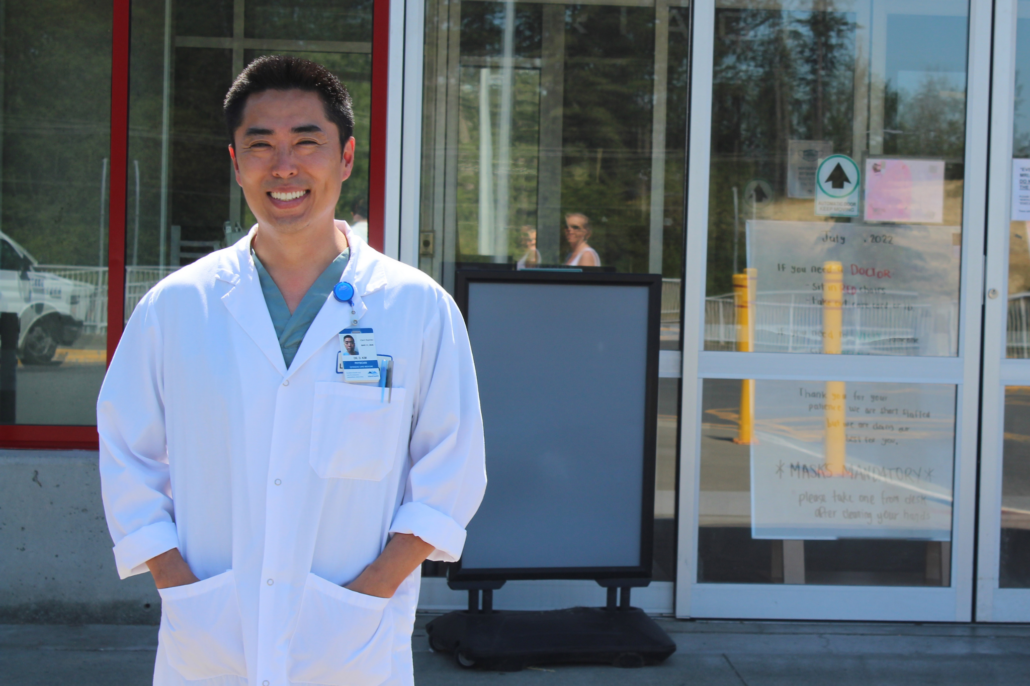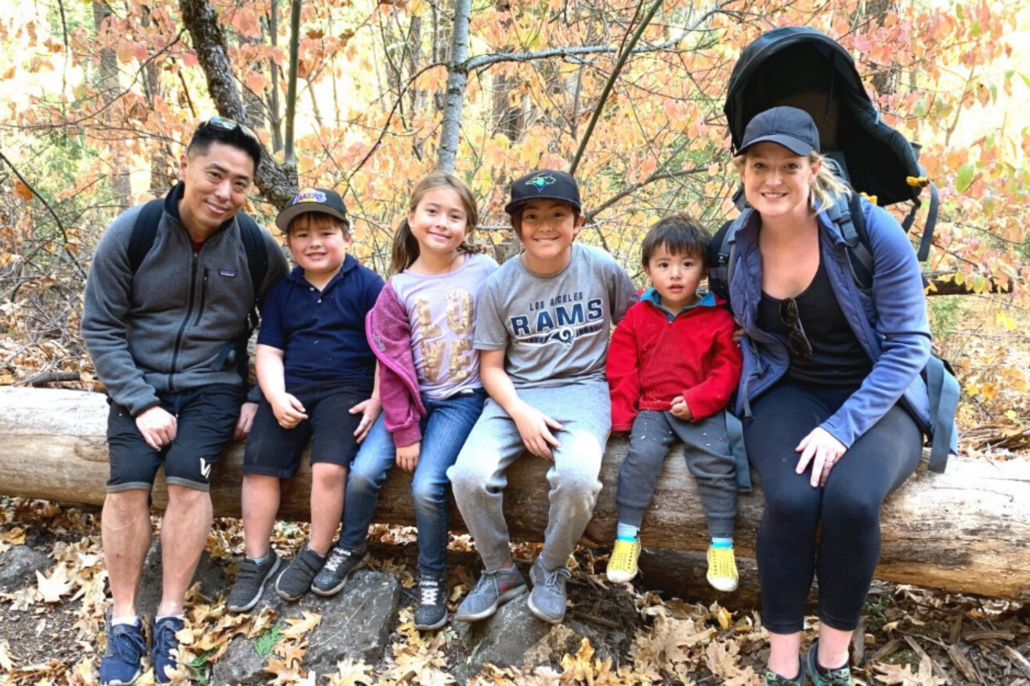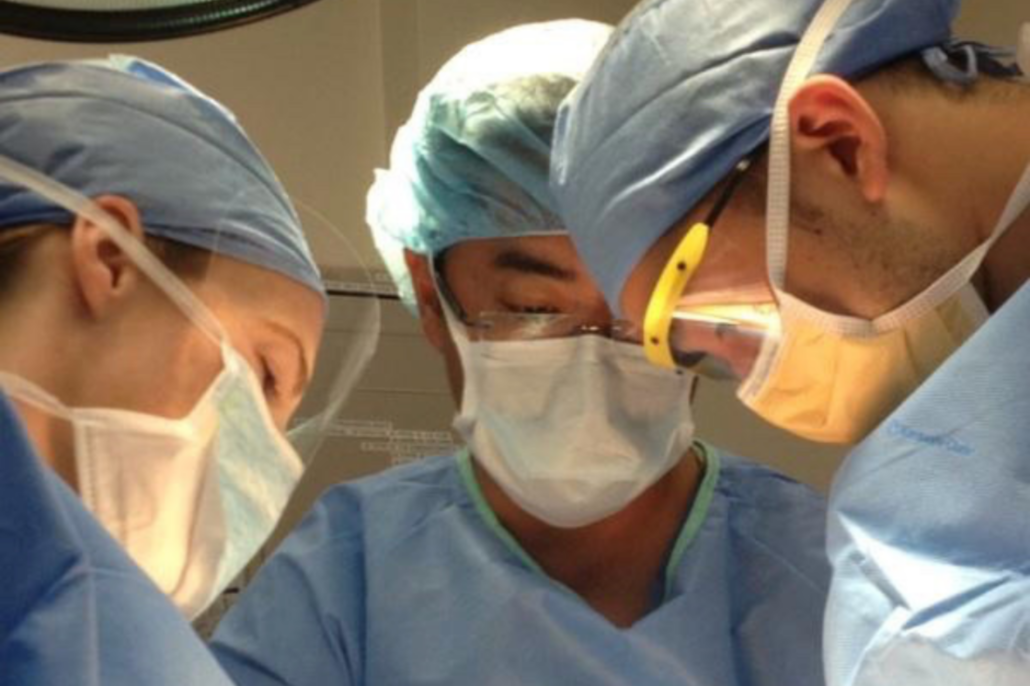
Dr. Dennis Kim
Medical Director of Trauma Services, Innovator, Visionary, Husband, Father, Human
Growing up, I had always enjoyed things like first aid, CPR, and lifeguarding at the local community pool. Later, in my college years, I realized that I really wanted to do a job where I was helping people. My mother is a nurse. And, during medical school, my grandmother was actually hit by a car. She sadly ended up passing away as a result.
That event had a big influence on me as I was going through medical school, realizing that the ICU was a very intimidating place to be. I’m usually the kind of person who, when I see a challenge, I try to rise to meet it instead of running away. I decided I wanted to do critical care. In Canada, we don’t see a lot of interpersonal violence—gunshot and stab wounds—and that was my reason for going down the U.S. for my training. I ended up staying there for 10 years, working at a very busy Level 1 trauma centre in south Los Angeles.
It’s a huge privilege to care for someone in a vulnerable state. It really is. We see people on the worst days of their lives. Often, trauma patients wake up in the morning, and it’s just another weekday of work. They expect to come home and have dinner with their families. But on that particular day, they might be catastrophically injured. We see people at their most vulnerable moments, and caring for them is a privilege. It’s an honour. And it’s why I love doing what I do.
“Growing up, I had always enjoyed things like first aid, CPR, and lifeguarding at the local community pool. Later, in my college years, I realized that I really wanted to do a job where I was helping people.”
“When it comes down to what’s most important in life, and what makes the greatest impact on patients’ recoveries, it’s having loved ones.”
I am lucky to have a very understanding partner who’s also in healthcare, and she’s always a great outlet. I am also extremely blessed with a beautiful family—four kids and a puppy. Being able to spend time with them is critical. We like to spend time outdoors, doing things like hiking. There are so many wonderful places to visit on the Island, and I’m only now starting to get out there to see them.
My family moved here during the pandemic when things in Los Angeles were getting out of hand. It was a pretty scary time. There were so many unknowns, and I was going in and out of a busy county hospital with high rates of COVID-19. I didn’t want to put my family at risk, so my wife brought the kids to Victoria to stay with her sister, and I joined them last October.
There’s a huge therapeutic role for us as providers. We help people, but we also help their loved ones. Sometimes, the outcome might not be the ideal one. But there are ways we can intervene and, at the very least, help families understand what is happening to their loved one. Sometimes, that means helping them come to the realization and acceptance that their loved one won’t be going home with them.
There are some patients who can’t be saved. And so, every day, I think it’s important to realize that it’s a good day, and to never take anything for granted.
In medicine and the sciences, we put so much emphasis on logic and reason. But one of the aspects of medicine and surgery that I personally love the most is the more artsy side of it, the unknowns. And there’s so much that goes into medicine—making a diagnosis, and really trying to figure out what’s happening with the patient.
All of us have an inner voice inside of us, whether we’re paying attention to it or not. It’s important in the hospital, the operating room, the ER, to listen to that voice, because we’re often working with such limited data points. These are life-or-death situations where we don’t have time to wait for data and labs and x-rays. I think it’s important every now and then to just check in with that inner voice and those gut feelings. Trusting yourself and your team is critical. And that applies not only to work, but home as well.
If I could go back, I would tell myself to take my time and enjoy the ride. I’m 47 now, and I started my medical school journey back in 2000. So it’s been 22 years. And it’s gone by in the blink of an eye. I wish, at some points, I could have just taken a bit more time to take it in and appreciate it. I think we get so fixated on the destination that we forget to enjoy the process. It just goes back to that idea of never taking anything for granted.
“These are life-or-death situations where we don’t have time to wait for data and labs and x-rays. I think it’s important every now and then to just check in with that inner voice and those gut feelings.”
They are humans first, who put other humans first.
More than 8,900 caregivers and staff work around the clock in our Victoria Hospitals
#HumansFirst is dedicated to sharing the stories from behind our hospitals’ frontlines. These stories remind us that those who provide care and keep the lights on in our hospitals also have lives outside of them. They have family and friends, they enjoy hobbies and interests, and they have all lived through their own personal triumphs and heartbreaks. Like all of us, they are human, and they have a story to tell.







